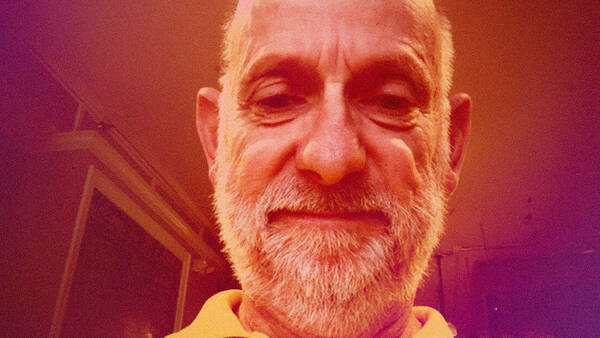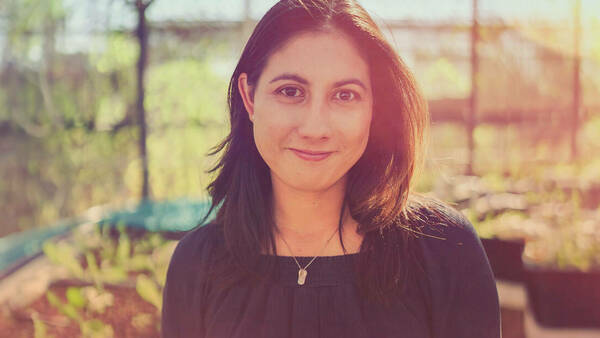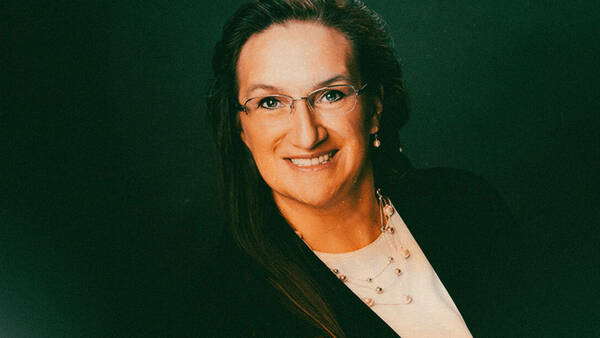A philosophy professor who specializes in Aristotle and contemplation, Meg Scharle ’95 pushes her students to think about how they can turn reflection into action and justice, especially in times of crises. Moreover, she leads by example, establishing a COVID-19 vaccination outreach program for the elderly members of her community at The Madeleine Parish in Portland, Oregon, and a toolkit in Spanish and English for other parishes and community-based organizations to set up similar programs.
Scharle’s struggles with booking her mom’s vaccination appointment prompted her to wonder how people with fewer resources were navigating this process. A council member at The Madeleine Parish, Scharle reached out to her pastor about turning these concerns into direct action — in the form of a vaccine program for those ages 65 and older. He approved immediately, and Scharle created a team to call each of the elderly parishioners.
After identifying those who might need help securing an appointment, Scharle and her team sought to address the main barriers to obtaining a COVID-19 vaccine. For those who did not have a ride, the church directed them to free transportation. Volunteers also helped those needing help either accessing or using the Internet — some even waking up at 4 a.m. on the days vaccine appointments went live. Given the abundance of information, the team monitored frequent updates and reassured the community that the vaccines were free of charge, no insurance was needed, and language services would be available at the sites. The team also researched accessibility of each site for those unsure of how to physically navigate the vaccination centers.
The volunteers and parish staff took on various roles to communicate this information, including posting on the parish website, creating graphics, answering phones, and putting the program information in the church bulletin. After vaccine appointments, they checked in to see how the parishioners were feeling, made sure their second doses were scheduled, and offered to drop off comfort foods.
Scharle’s work with this program weaves her work in academia as a professor at Reed College, her faith life, and her Notre Dame education. She is particularly fond of a quote from Pope Francis’s Let Us Dream: “We need to move from the virtual to the real, from the abstract to the concrete, from the adjective to the noun.”
Scharle ties this quote to Notre Dame’s mission, a portion of which states, “The University seeks to cultivate in its students not only appreciation for the great achievements of human beings, but also a disciplined sensibility to the poverty, injustice, and oppression that burden the lives of so many.”
Given the far-reaching effects of the pandemic and the role that social connections can play in helping individuals get vaccinated, it was important for others to be able to use this information and employ similar methods for setting up appointments. The Madeleine Parish ended up sending a consultant to other groups that wanted to adopt similar programs. In addition, Scharle’s team created sample social media posts and emails, both of which have been translated into Spanish, to distribute as part of the toolkit. The Oregon Health Authority distributed the toolkit to 1,800 faith-based communities, especially those communities hit hardest with COVID-19. The team even created a modified guide for non-parish groups, such as Store to Door — through which volunteers deliver affordable groceries to seniors as well as adults with disabilities — Northwest Housing Alternatives, and Meals on Wheels.
Scharle utilized the resources and networks of trust the communities already had in place. For example, Store to Door delivered food, so The Madeleine Parish’s Director of Communications created a vaccination flyer to go in the grocery orders. Scharle also forged a partnership between the Portland Bureau of Emergency Management and Meals on Wheels to set up vaccine appointments and arrange transportation. This partnership ensured that people were aware of the variety of emergency resources available, such as each neighborhood having a management volunteer. They were also able to introduce Meals on Wheels clients to other Bureau services, such as transportation to cooling centers for heatwaves.
“Certify, explain, then show people how to take action,” Scharle explains. “[Service organizations] have the responsibility to be a trusted voice in the pandemic and explain why it is important to be vaccinated. We wanted to be able to quickly update a website that’s local and trusted. That is why we met with the Oregon Health Authority's technology team — to give insights as to what we thought would be useful going forward.”
The Portland Bureau of Emergency Management awarded Scharle a COVID-19 Challenge Coin to recognize her service during this crisis, as well as the Bureau Challenge Coin #89 for her collaboration in serving especially vulnerable populations in Portland. Her efficient and effective work remains a model for solving issues related to crises beyond the pandemic



